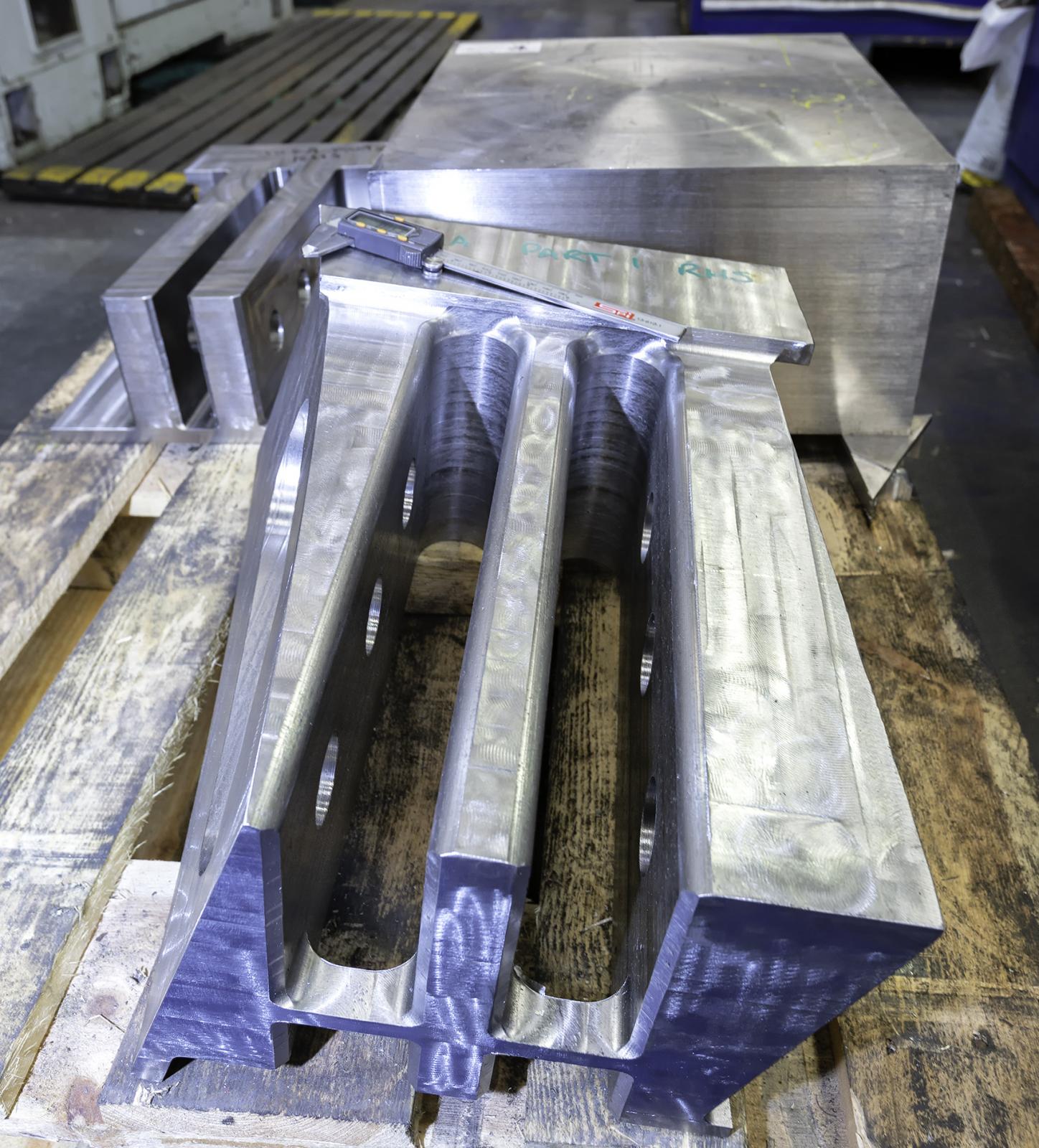
Alken Engineering has gone full CNC with the installation of an XYZ Linear Rail machining centre to take on a difficult stainless steel machining project for King Arthur’s castle at Tintagel.
The company is a long-term user of XYZ Machine Tools’ ProtoTRAK mills, being an ‘early adopter, when the ProtoTRAK control was introduced to the UK in 1993. It now has 10 XYZ ProtoTRAK mills and three XYZ ProTURN lathes on its capacity list, but for many years resisted purchasing any XYZ ‘full CNC’ machines.
Part of the four-company Alken Holdings Group, it is a specialist machining and fabrication company that counts many blue-chip companies, such as Bentley Motors and Volvo, as customers, as well as working in the aerospace, power generation and general subcontract sectors.
While the majority of its work involves machining of steel and more exotic materials, it also gets involved in components manufactured from aluminium and nylon.
The Alken Group won a contract to machine a series of connector blocks that would be used in the construction of the bridge linking the mainland to Tintagel Castle, the fabled birthplace of King Arthur. These connectors are machined from solid blocks of Duplex stainless steel, with the finished parts measuring up to 460 mm by 237 mm by 237 mm, with slots that are 135 mm deep in places. The work came to Alken after ten other subcontractors had withdrawn from the contract due to the difficulty in machining these parts, as a result Alken was faced with a tight deadline, as well as a capacity issue. “We knew that any delay would put the bridge project back, which was unacceptable to the main contractor, American Bridge, and its customer, English Heritage. However, our initial concern was that the parts could have been described as un-machineable. Following discussions with our customer, Underhill Engineering, changes were made to the design. Once those issues were overcome, we were then faced with machining Duplex, particularly those slots.”
Initially, machining was carried out by two other companies within the Alken Group on what Paul Coverley describes as ‘high-end’ machining centres. “These companies had what I thought was the experience and equipment to handle this work, but we found ourselves falling behind schedule as the machines struggled with the volume and complexity of the parts, so we had to bring work in to Alken Engineering.
With each of these connector blocks requiring between 70 and 80 hours of machining there was a lot at stake and Alken, along with assistance from XYZ Machine Tools and tooling supplier Ceratizit UK & Ireland began to test the boundaries of what the LR machines were capable of.
To machine the slots the tooling used involved an overhang of 4x diameter using an indexable insert cutter with 12 mm Dragonskin-coated button inserts running at 140m/min with .3mm/rev a tooth on the feed. Considering the material being cut both the machines and tooling produced the quality and finish required. “Once we got our collective heads around the machining of Duplex we haven’t looked back and the XYZ LR machining centres are producing these parts better, and quicker than those high-end machines we started with.”
http://www.alkenengineering.co.uk/
BACK TO ENGINEERING CAPACITY NEWS PAGE